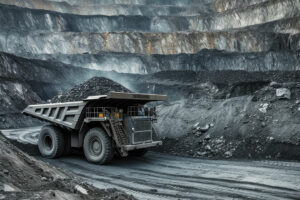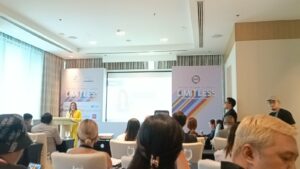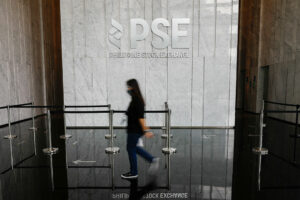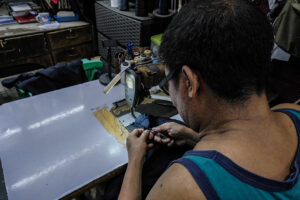(Part 1)
On April 26, I participated in the Palawan Stakeholders’ Congress on Mining and the Environment (PSC-ME) held in Puerto Princesa. Among the more than 100 participants were provincial officials and heads of LGUs, top officials from the Department of the Environment and Natural Resources (DENR) and Mines and Geosciences Bureau, executives from some of the nine existing mining operators in the Province of Palawan, members of the aca-deme, heads of NGOs, representatives from the indigenous tribes, people from media, and high officials of the Catholic Church in the Province such as Bishop Broderick Pabillo of the Apostolic Vicarate of Taytay and Bishop Socrates Mesiona of the Apostolic Vicarate of Puerto Princesa who were joined by some members of both the secular and religious clergy. After hearing some of the representatives from the NGOs committed to protecting the physical environment proclaim that “sustainable mining is an oxymoron,” a contradiction in terms, I was not surprised that at the end of the three-day Congress, more than 90% of the participants voted for a moratorium on the issuance of new permits for new mining operations in the province.
Fortunately, the Secretary of the DENR, Maria Antonia Yulo-Loyzaga, has often publicly stated that she believes in sustainable mining and that the mining industry is vital to generating economic growth and employment for the Philippine economy. She is, however, also very clear in her statements that mining firms must strictly adhere to regulations and practices that protect the physical environment. In the same Palawan Stakeholders Congress, I myself was very clear about the significant role that the mining industry plays not only in the Philippine setting but in the global economy. No one would question that the mineral mining industry is a primary sector providing the raw materials needed by numerous industries, especially those that are part of the so-called Industrial Revolution 4.0 (Artificial Intelligence, Internet of Thing, Robotization, and Data Science). It is difficult to imagine economies running without such raw and processed mineral ores as copper, nickel, and iron. They are essential for infrastructure development, transportation systems, electrical grids, and various consumer and industrial goods. In fact, the ongoing solutions to the problem of climate change, such as solar, wind, and geothermal energy, would be impossible to implement without nickel and copper. Neither could electrical vehicles be manufactured without such mineral ores.
By its sheer size in terms of investments in exploration, feasibility studies, construction, and development, to operations and closure, mining can contribute substantially to the economy, stimulate economic activities through key industry linkages, create job opportunities, generate fiscal revenues for the government, and provide livelihood opportunities to local communities (including indigenous tribes) and to micro-small scale and medium enterprises. Mining attracts massive amounts of capital to fund pre-exploration, exploration, and development activities, to jump start mining operations, and to generate sustained export revenues.
Especially in the context of Philippine industrial realities, there is little hope for manufactured exports to provide a substantial foreign exchange earnings for the Philippines in the medium term, except for the semiconductor and electronic components sector. It will take at least the next five years for us to introduce the necessary reforms in the agribusiness sector for the Philippines to export large amounts of high-value food products, such as those being exported by Thailand and Vietnam. We have no choice but to rely heavily on the exports of mineral products as a complement to the earnings from the Overseas Filipino Worker remittances and service exports such as those coming from the Information Technology and Business Process Management sector and from tourism. After all, mining belongs to the same sector called “industry” together with manufacturing, construction, and public utilities. To develop mining as much “industrializing” an economy as manufacturing does.
The problem, though, is that mining as an extractive industry has a direct impact on the physical environment that is already seriously challenged by natural disasters such as floods, earthquakes, and volcanic eruptions. Mining can reshape the natural landscape, displace communities, and emit industry-specific effluents and pollutants. Understandably, there is a growing militancy of responsible investors, downstream industries, civil society, and governments clamoring for stricter, unique and demanding standards and requirements.
Environmental, social, and governance principles must be adhered to and translated into practices for mining companies to gain societal, legal, moral, and environmental acceptance. In this regard, we see a trend for Catholic bishops and priests to be increasingly vocal about the moral and ethical principles that must be followed in striking a balance between economic development and environmental stewardship, ensuring the protection of natural resources while minimizing environmental degradation and social disruptions. It must be categorically stated that Bishops, priests, and other Church officials who express their views about the negative effects of mining are not violating the principle of the separation of Church and State. They are just exercising their right to give spiritual and moral guidance to their flock about the moral obligations of human beings to respect the creatures, both animate and inanimate, that have come from the hands of the God, the Creator of all things.
Unfortunately, a recent event tends to confirm the wisdom of the majority opinion expressed by the mining stakeholders of Palawan. On May 11, there was another mining disaster in Surigao del Norte. The tailings storage facility of the Siana Gold mine, operated by Greenstone Resources Corp. (GRC), collapsed, burying houses in the mining village of Siana, Mainit. Although no one died among the 55 families who fled to safety, this disaster reminded the public of the “mother of all mining disasters” in the Philippines: that of Marcopper and Placer Dome in the island of Marinduque. As reported by Science expert Segundo Eclar Romero in his column in a leading Philippine daily, “from 1975 to 1991, mil-lions of tons of mine tailings leaked into Calancan Bay, contaminating the marine ecosystem and impacting fishing communities. In 1996, a drainage tunnel collapse released 1.6 million cubic meters of toxic tailings into the Boac River, flood-ing downstream areas, destroying crops, and severely polluting the river system.”
Given this mining disaster and many others, some of which could have been prevented by more responsible practices, it becomes the duty of those who give moral and spiritual guidance to their flock to give the necessary guide-lines for action. Since 1891, the Popes of the Catholic Church have been issuing what are known as social encyclicals to give the Catholic faithful, both the clergy and laity, “principles for reflection, criteria for judgment and guidelines for action” concerning what is necessary to promote the common good of society. Here, the common good is defined, not as the greatest good for the greatest number, but as a social or juridical order that promotes the good of every single individual — politically, economically, socially, morally, and spiritually. This is how the “common good” is defined in the Philippine Constitution of 1987.
In the Palawan Mining Stakeholders Congress, the Most Rev. Socrates C. Mestona, MSP, D.D. gave the most comprehensive presentation of what the Teaching Authority of the Church has to say about the duty of everyone to take care of our common home, the physical environment in which we live. He first explained the basic principle of the spirituality of stewardship which is fundamentally anchored on the belief based on revelation that God is the creator of heaven and earth. It means that “nothing exists that does not owe its existence to Him. As such, everything belongs to the Creator. However, in His goodness and generosity, God entrusts His creation to human beings to care and cultivate responsibly. He gives them dominion to be productive, multiply, and replenish the earth so that they can also enjoy its fruits which He destined to be shared fairly, not only for the past and present but for the future generation of humanity as well.”
(To be continued.)
Bernardo M. Villegas has a Ph.D. in Economics from Harvard, is professor emeritus at the University of Asia and the Pacific, and a visiting professor at the IESE Business School in Barcelona, Spain. He was a member of the 1986 Constitutional Commission.





